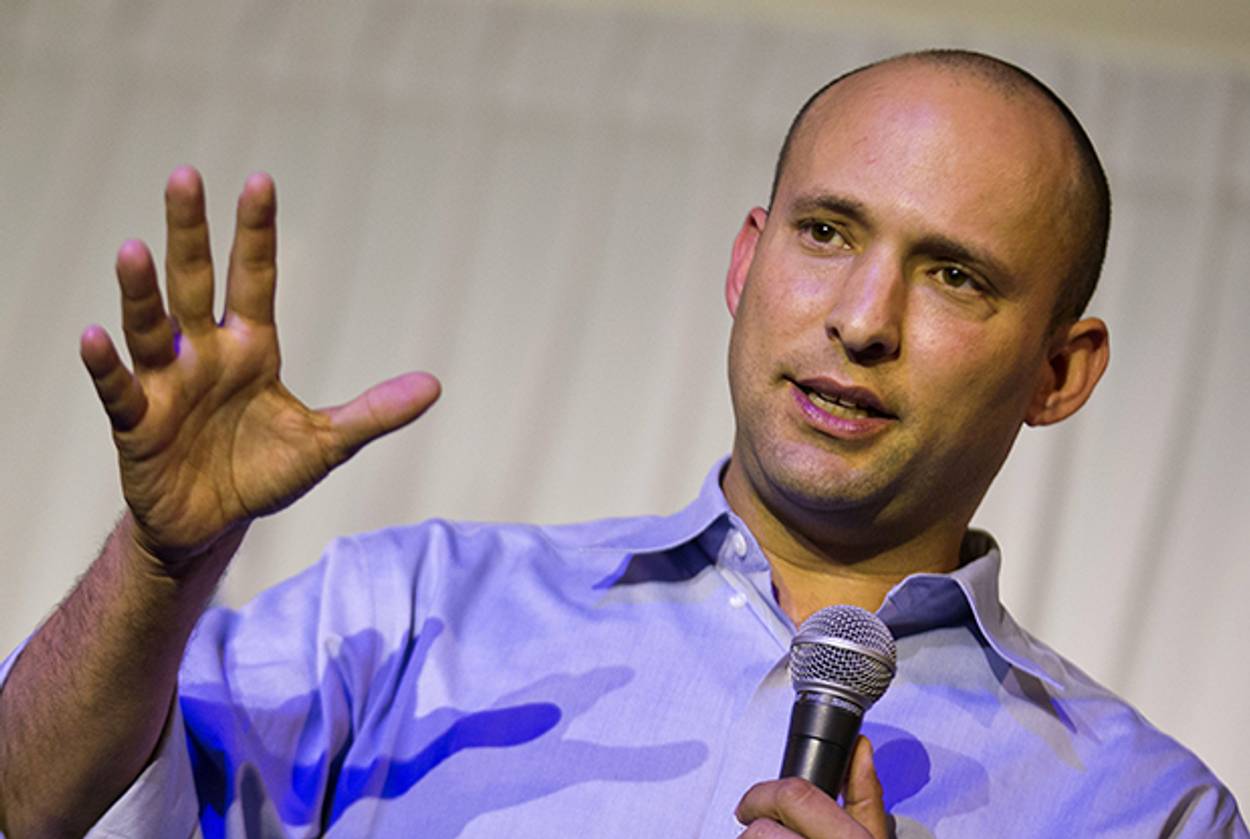Israel’s National Religious Party to Run Non-Religious Candidates
More proof that Israel is not becoming a theocracy




Back in April, the New York Times published an op-ed alleging Israel was on the road to becoming an Orthodox Jewish theocracy. As I wrote at the time, the piece evinced profound ignorance of the beliefs of Orthodox Jews in Israel–many of whom oppose theocratic governance–and the broader politics of the country, which have taken a decidedly anti-clerical turn. Recent months have seen the drafting of the ultra-Orthodox into the army, the stripping of powers from the country’s chief rabbinate, and an alliance between secular and religious Zionist politicians against the ultra-Orthodox. In other words, contrary to some of its more hysterical critics, not only is Israel not on the cusp of religious rule, it is heading in the opposite direction. And this week, Naftali Bennett, head of the country’s largest religious party–Jewish Home–showed why.
On Wednesday, Jewish Home approved a revised constitution put forward by Bennett. This may sound like inconsequential inside baseball, but it was actually deeply significant. As the Times of Israel reported, “In what was one of the most controversial changes, the historically national-religious party will now also accept non-religious members.” In an effort to appeal to the mainstream in the next national election, particularly secular Russians and Druze, the party is set to run multiple non-religious candidates for the first time in its entire history. Unsurprisingly, “those against the change fear that it will water down the party’s religious ethos.”
The seismic shift symbolized by Bennett’s move was captured by one critic of the constitution who told Haaretz: “Bennett intends to turn Habayit Hayehudi from a religious national party into a national religious party. The new constitution turns its back on symbols identified with religious Zionism and revokes the party’s total commitment to religious-national education, to the Bnei Akiva Movement or Hapoel Hamizrahi Movement.”
And yet, the revamped constitution passed with a solid majority, for a very simple reason: that’s where the votes are. For a party to win a commanding number of seats in Knesset, it must appeal to the Israeli mainstream, and the Israeli mainstream won’t vote for religious parochialism. At root, this is why Israel won’t become a theocracy any time soon: there’s no serious constituency for it. This is not only because of the anti-clerical sentiment that has been sweeping the country of late. It’s because even if any one population suddenly decided it wanted to enact theocratic governance, they’d be thwarted by the rest of the electorate. After all, the religious Zionists wouldn’t want an ultra-Orthodox theocracy, the ultra-Orthodox wouldn’t want a religious Zionist theocracy, the Arab-Israelis wouldn’t countenance a Jewish theocracy, and the secular Jews would oppose any theocracy. In other words, the checks and balances of Israeli democracy and demography prevent the establishment of theocracy–and thus push politicians like Natfali Bennett towards a more inclusive stance.
Sensationalist editorials about Israel creeping toward theocracy admittedly make for great eye-catching copy at the New York Times. But these revisions to the constitution of the country’s largest religious party, while utterly unremarked in the international media, tell us a lot more about what sort of place Israel is, and where it is going.
Previous: No, Israel Isn’t About to Turn Into a Theocracy
Related: Zionism’s New Boss
Yair Rosenberg is a senior writer at Tablet. Subscribe to his newsletter, listen to his music, and follow him on Twitter and Facebook.